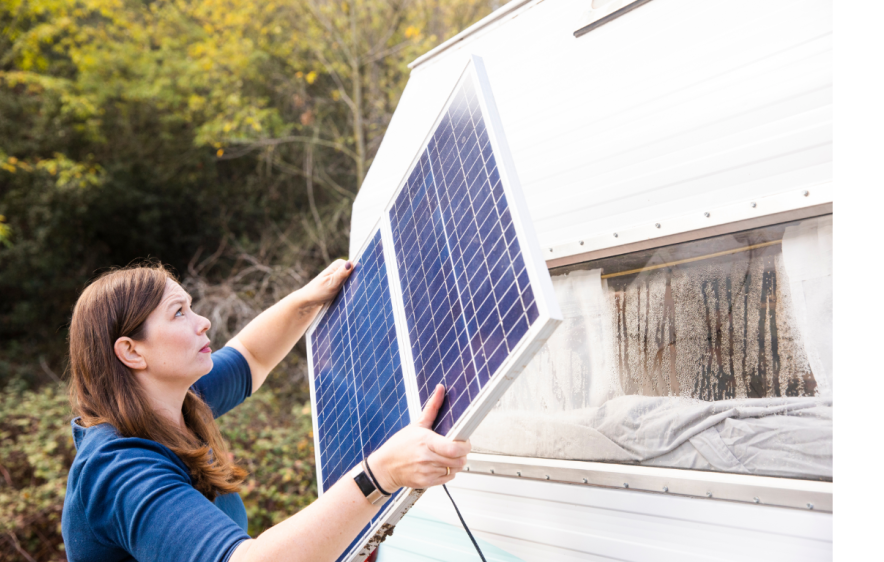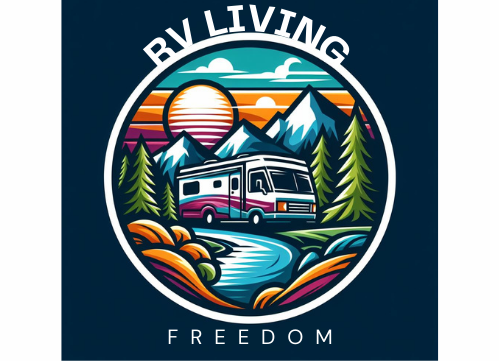If you’re thinking about taking the leap into solar power for your RV, you’re joining a large community of green-friendly travelers who enjoy the freedom of off-grid living. However, before you start enjoying limitless energy from the sun, it’s crucial to get a few things straight to avoid common installation mistakes.
Unlike stationary homes, RVs present a special challenge with different space sizes and energy demands. You’re going to find out that tailoring your solar system to work within these unique challenges is not only unique but can be challenging based mostly on the size of your vehicle.
Look at it this way if i have a class a RV i can place more panels on the roof, compared to a class c RV with a much smaller roof size. You should first learn about the solar power way of life.

To determine what sort of solar setup you’ll need, start by looking at your energy consumption. Think about the appliances you can’t do without while on the road and calculate their power usage. Doing so will ensure you get a system that’s not just compatible with your energy needs, but one that’s also efficient and reliable.
Finally, choosing the right equipment is not to be taken lightly. With the large range of solar products in the market, you should look for components that not only work with an RV lifestyle but also offer durability for those long, bumpy rides. Plus, a well-thought-out installation layout is essential to getting the most out of your investment, allowing for adequate sun exposure and ease of access for maintenance.
10 Ways to Avoid Solar Installation Pitfalls on Your RV
You’re going to find out about the common blunders many RV owners make when they jump into solar without the right preparation. These tips will ensure you steer clear of those problems on the road to energy independence.
1. Beginners often underestimate the importance of figuring out their energy needs with their RV’s solar capacity . Take the time to tally up the wattage of all your gadgets and appliances. It’ll save you from the headache of an underpowered system that can’t keep your fridge cold.
2. Set a proper solar power budget. It’s easy to go overboard with high-end components, but more expensive doesn’t always mean better for your specific situation. Choose wisely to balance cost against performance.
3. Space constraints of RVs, placing solar panels correctly is critical. Find that sweet spot on your roof where the sun’s kiss is strongest, and adjust for tilt and orientation to get the most out of your panels all year round.
4.Storms and high speeds can wreak havoc on poorly secured panels. Use the right mounting equipment to keep your investment safely intact. You don’t want your solar panels to take flight during the next gust of wind.
5..Tackling the solar setup yourself might seem like a good idea, but a professional installer can be invaluable, particularly for more complex systems . They’ll know how to maximize efficiency and minimize any issues you might have down the road.
6.Keep warranty conditions in mind. Sure, DIY is satisfying, but it can sometimes void warranties. Manufacturers typically prefer certified installers for their products’ guarantee to stay in effect.
7 The charge controller. Don’t skimp here; a top-tier charge controller will protect your batteries and optimize energy collection. It’s the brain of your solar system.
8. Keeping an eye on your solar setup. A bit of monitoring can go a long way to help you spot inefficiencies before they escalate. Always before you leave for the day, check your solar setup to make sure it is secure to your roof. A loose panel could seriously hurt someone.
9. If you’re not confident with electrical systems, please avoid DIY electrical work. A mistake here could be more than costly; it could be dangerous.
10. Plan your installation in a way that allows for easy upgrades or maintenance. Solar technology evolves, and so might your energy needs. By planning for the future, you’ll save time and that all important money.
Securing a Brighter Future: Safeguarding Your RV Solar Investment

A lot is happening very quickly in the world of renewable energy, especially in the realm of solar technology for RVs. Keeping up-to-date means that you can always adjust your approach down the road, potentially incorporating more efficient panels or battery storage solutions as they become available.
Education is power, and I really hope that you arm yourself with knowledge. Don’t worry too much about getting everything perfect from the start; your first attempt doesn’t need to be your last. Keeping informed ensures that you can make decisions that reflect the latest advancements and best practices in solar for RVs.
This is a guide mostly to help you avoid making mistakes which could cause you financial troubles but also safety issues. Think about driving down the open road listening to the tunes on your radio and suddenly there goes one of your solar panels hitting a car behind you. That can really ruin your trip and possibly become a legal issue if some is hurt.
So if you are not skilled in installing a solar system on your small or large RV i recommend having a professional do the work. In closing these are some solar installation mistakes to avoid on an RV. Have a safe and joy full trip where ever you are going.
